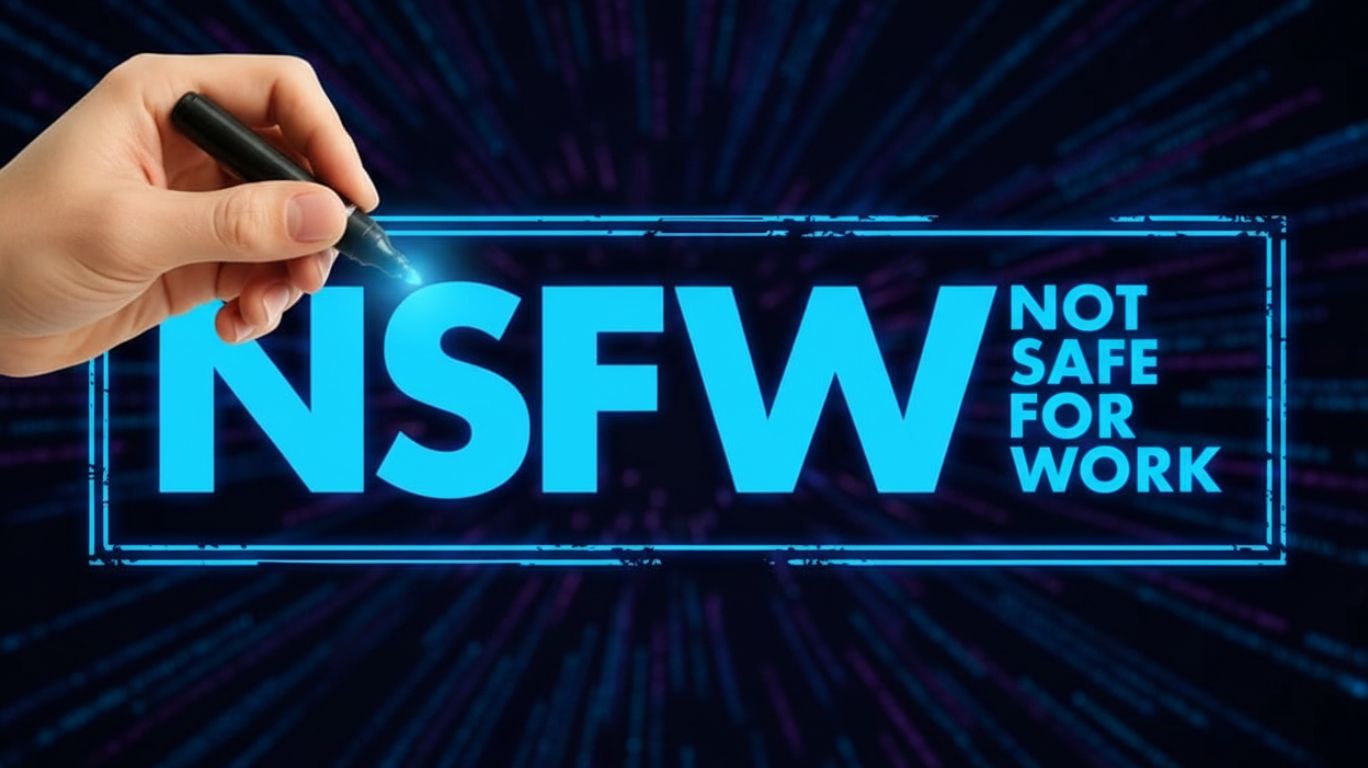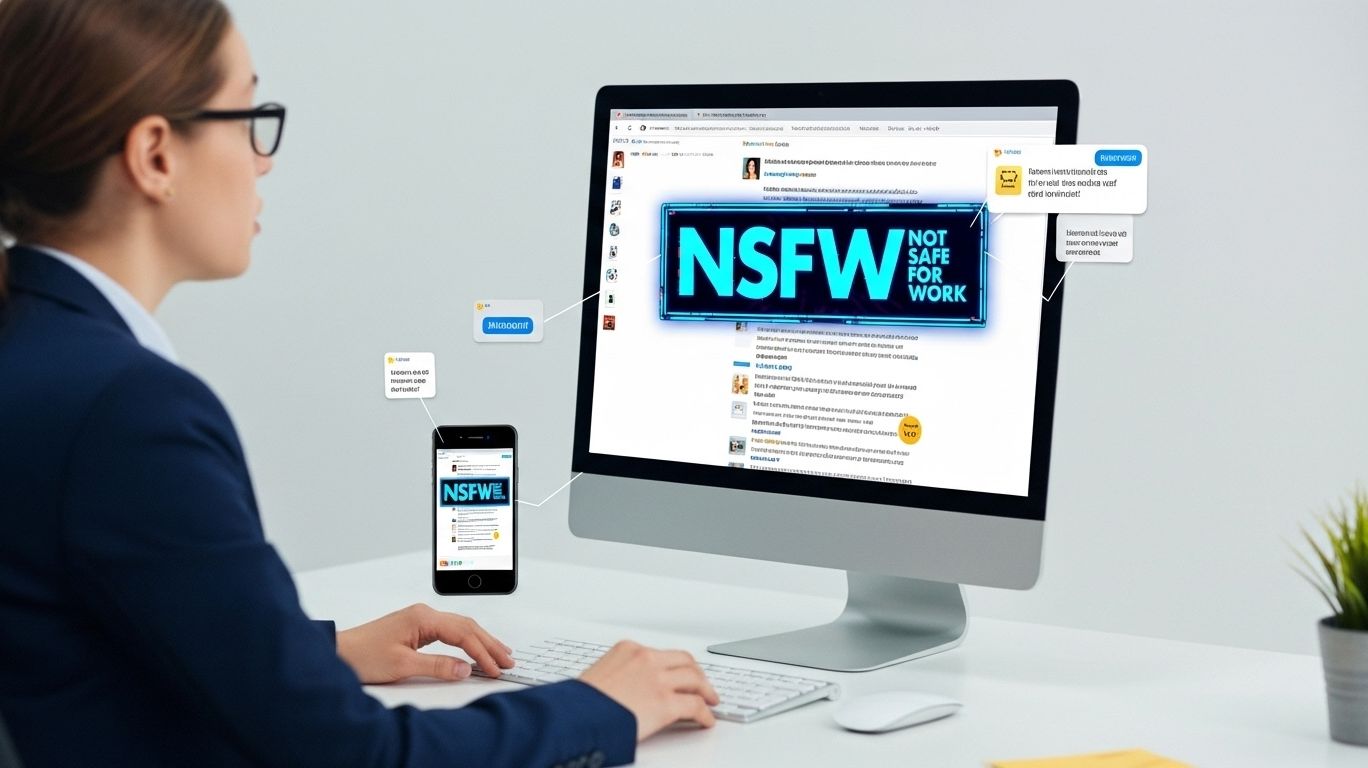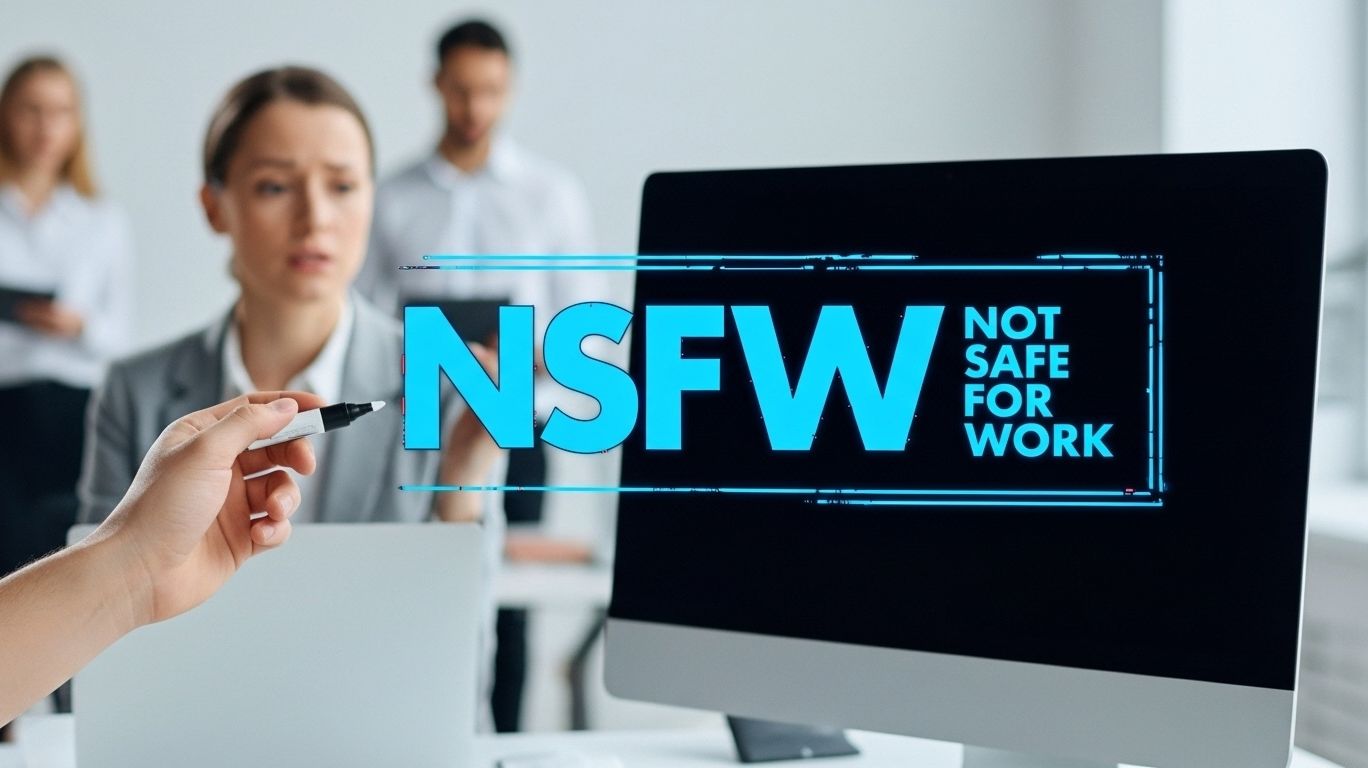
You’ve probably seen the letters “NSFW” pop up in your inbox, social feed, or on a forum. At first glance, it looks harmless — just another internet acronym. But clicking on NSFW content in the wrong setting (like at work) can land you in some seriously awkward situations, or worse, trouble with your employer, highlighting the importance of a content warning. Understanding what NSFW means– and when to steer clear- is essential whether you’re managing the online world for work, leisure, or both.
NSFW is an internet abbreviation and shorthand for “Not Safe For Work” or “Not Suitable For Work.” It’s a label used to warn that the content linked, attached, or embedded could be inappropriate for professional environments. While this could refer to anything unsuitable for the workplace — from offensive jokes to explicit language — it’s most often associated with:
The purpose of the tag is simple: to prevent accidental exposure to sensitive or explicit material in environments where such content would be considered unprofessional or unacceptable.

The term “NSFW” became popular in the early 2000s on websites and online communities like Reddit and 9Gag. These platforms attract a broad user base, including adults and minors, so they needed a quick way to separate adult or sensitive content from general posts. The NSFW tag allowed users to make informed decisions before clicking.
Over time, the acronym moved beyond social media and became common in:
Today, “NSFW” is as much a part of internet culture as “LOL” or “BRB,” but with a much more serious warning attached.
Opening NSFW content at work can be more than just embarrassing — it can result in disciplinary action or even termination, depending on your company’s policies. Work computers, email accounts, and networks are often monitored, meaning your employer may have access to your browsing history.
Potential consequences include:
The safest approach? Avoid opening NSFW links during work hours — even from friends or colleagues.
If you want to avoid stumbling across NSFW material unintentionally, there are a few practical steps you can take to avoid stumbling across inappropriate videos :

NSFW isn’t just internet slang — it’s a heads-up to protect yourself and your professional reputation. Inappropriate content, including humor, can be entertaining or intriguing in the right setting, but the workplace isn’t one of them.
Understanding what NSFW means and practicing safe browsing habits allows you to enjoy the online world without crossing boundaries.
Recognizing and handling NSFW content is part of being a savvy, responsible internet user. To learn more about safe browsing habits and privacy protection, check out our internet safety best practices guide. Stay informed, stay safe, and keep your clicks workplace-friendly. If you are looking for NSFW content or a NSFW AI companion newgirlfriend.ai has just what you need. We offer many AI girls to choose from as well as a free and premium version of the site.
Before we take a look deeper, let’s clarify: what is nsfw? NSFW means “Not Safe For Work” or “Not Suitable For Work.” It’s a warning that the linked or attached content may be inappropriate for professional or public settings.
Typically, NSFW content includes nudity, pornography, explicit language, graphic violence, or other forms of violent content and disturbing imagery. It can also cover offensive jokes or sensitive topics unsuitable for workplace viewing.
The term became popular on platforms like Reddit and 9Gag as a way to label and filter adult or sensitive content so users could decide whether or not to view it.
Yes. Many workplaces monitor internet usage, and opening NSFW material on a computer can lead to warnings, HR action, or termination, depending on company policies.
Use safe search filters, enable email spam filters, avoid clicking suspicious links, and look for NSFW labels before opening any content.
No. While sexual content is the most common, NSFW can also refer to images, violence, gore, or other sensitive material that’s inappropriate for certain environments.
Not exactly. “18+” is an age restriction, while NSFW is a situational warning that the content might not be appropriate in specific contexts, like the workplace.
